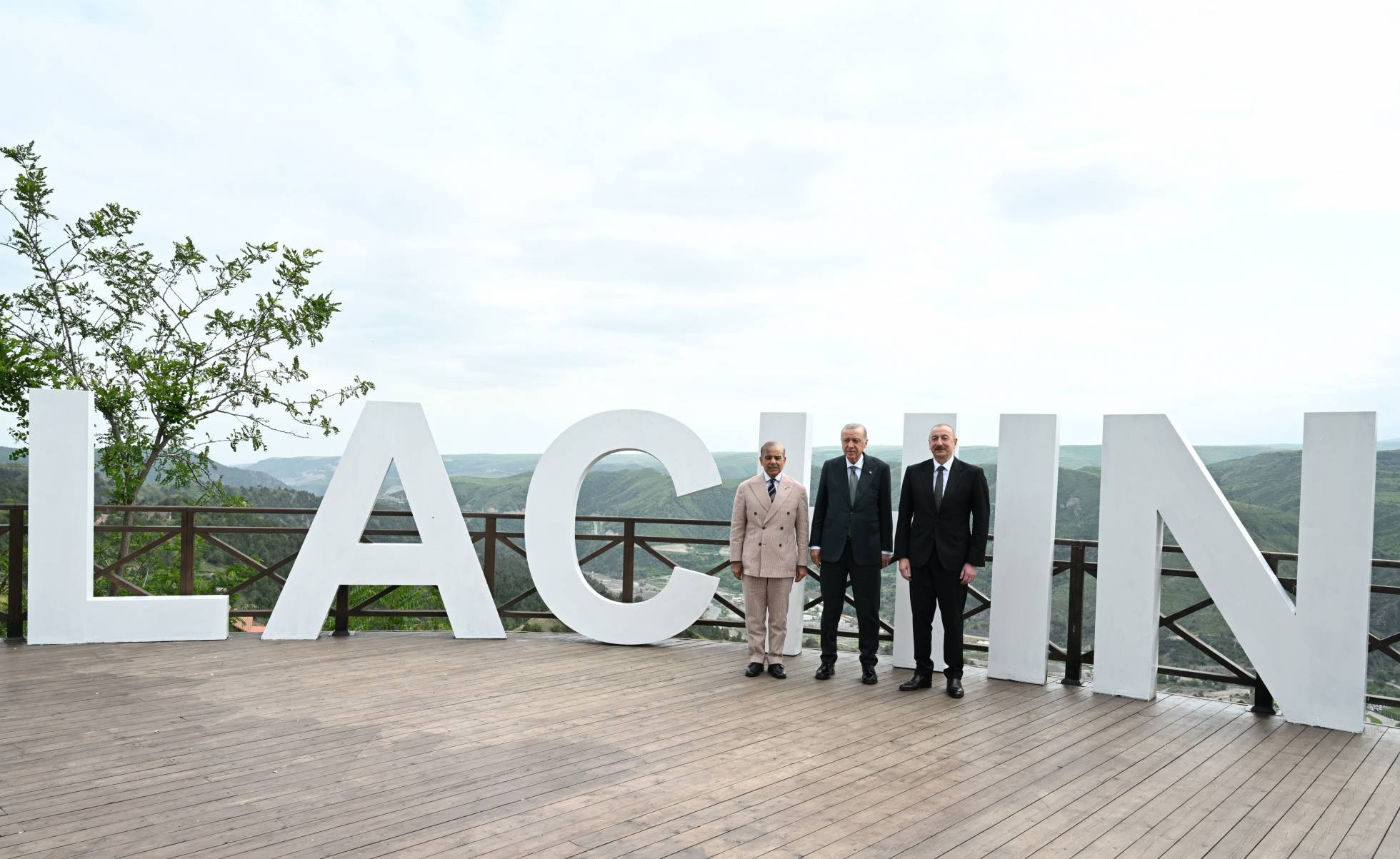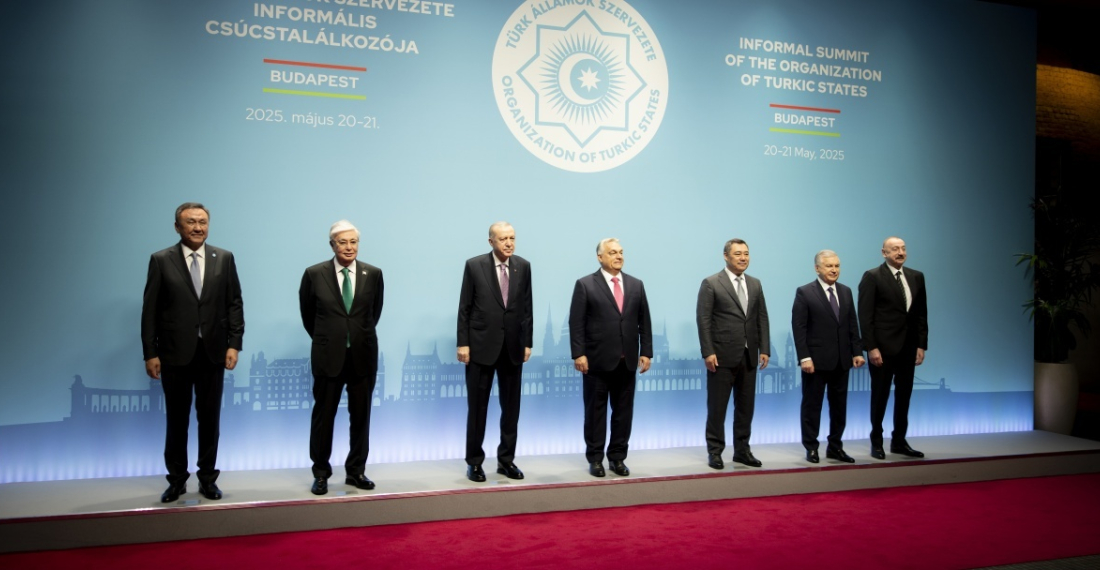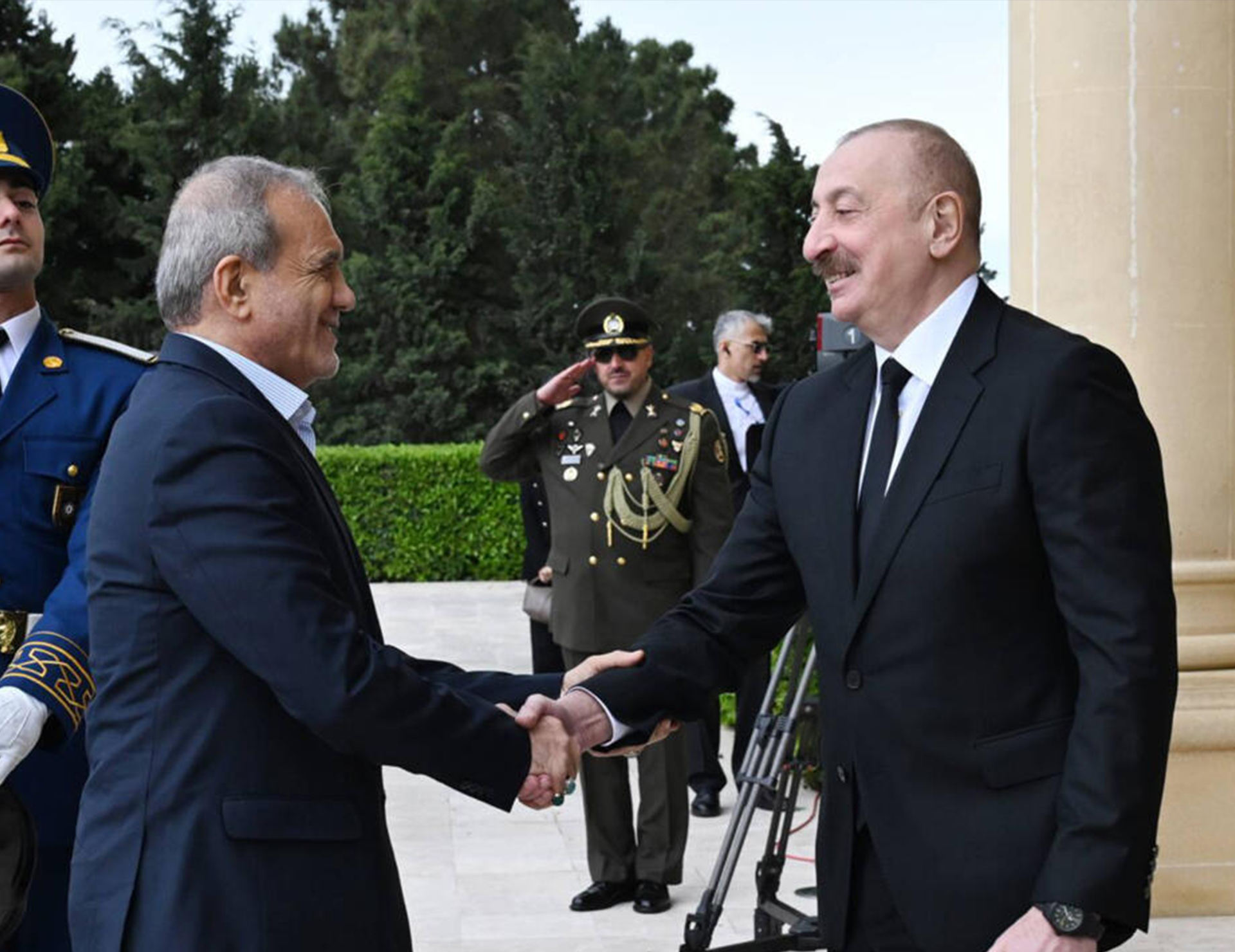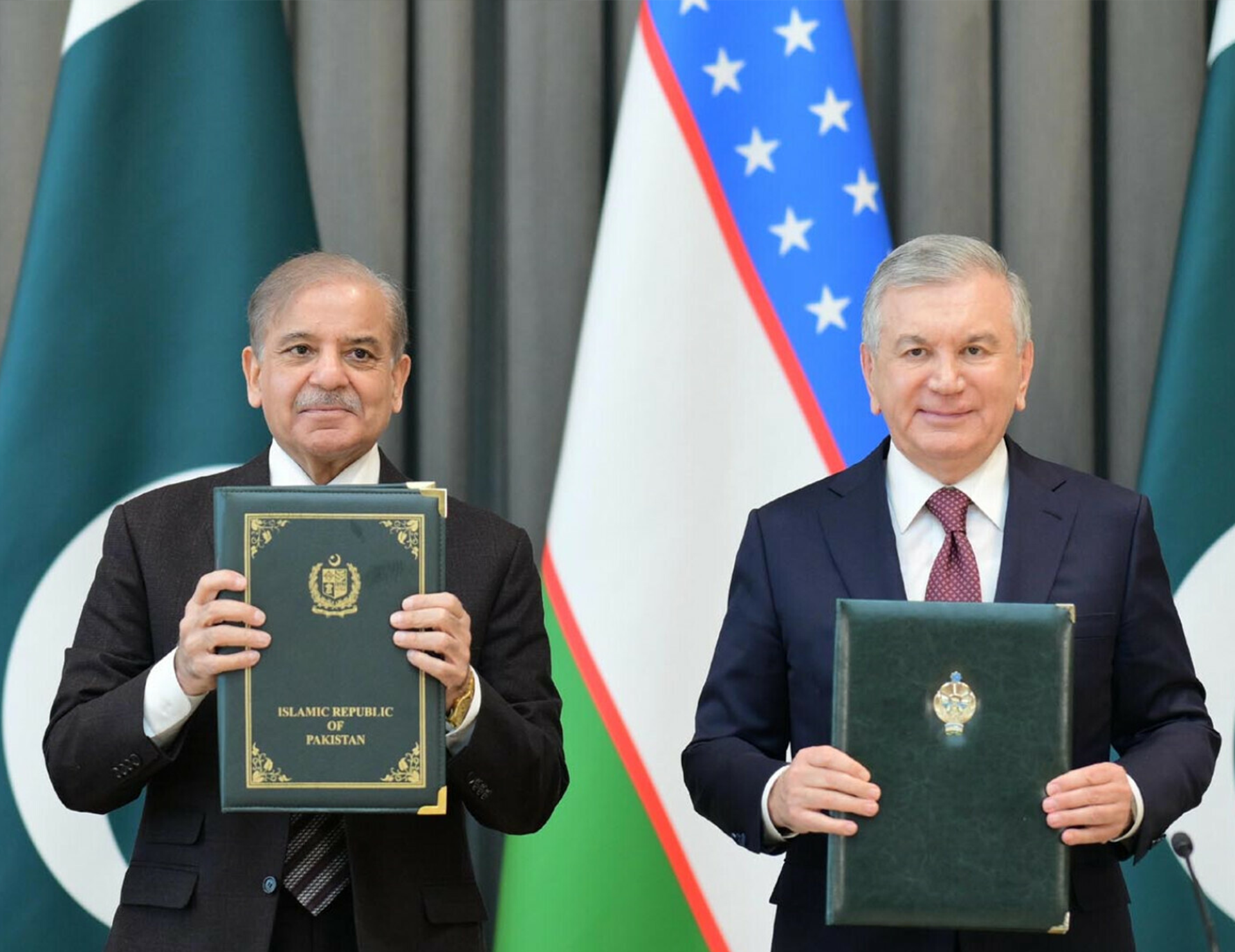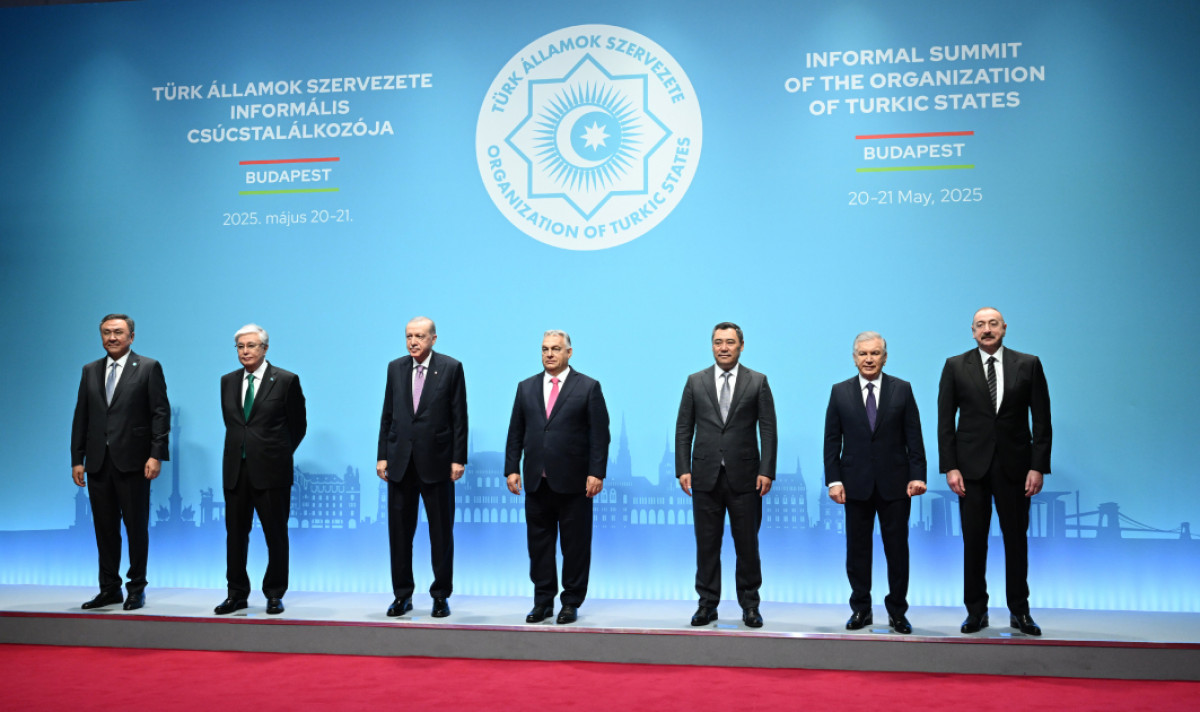On May 28 — the Independence Day of the Republic of Azerbaijan — a historic trilateral summit convened in Lachin, Azerbaijani region which was liberated from the Armenian occupation as the result of the Second Karabakh War. It brought together the President of Azerbaijan, Mr. Ilham Aliyev, the President of Turkey, Mr. Recep Tayyip Erdogan, and the Prime Minister of Pakistan, Mr. Muhammad Shahbaz Sharif. This event not only marked a diplomatic milestone but also symbolized the growing political and strategic convergence of three key regional players.
The timing and location of the summit carried profound symbolism. Choosing to hold this event on Azerbaijan’s national day was a testament to the country’s independent and confident foreign policy. It reflected Azerbaijan’s resolve to forge strong, value-based alliances, particularly with nations that have consistently supported its sovereignty and territorial integrity. The presence of Turkey and Pakistan on such a significant date was a message of solidarity and shared vision for the future.
Furthermore, the coincidence of the summit with the inauguration of Lachin International Airport signaled a new phase in Azerbaijan’s post-war recovery. The reconstruction of infrastructure in liberated territories demonstrates the country’s determination to heal, rebuild, and reintegrate these regions into national life. Hosting high-level leaders at such a symbolic location underscored this commitment.
President Ilham Aliyev opened the summit by emphasizing the profound historical, cultural, and civilizational ties that bind the three countries. He noted their consistent support for principles of sovereignty and justice, and he highlighted the close cooperation that exists in times of need. In turn, Presidents Erdogan and Prime Minister Sharif reaffirmed the strategic relevance of the trilateral format and voiced strong support for greater integration across economic, political, and defense sectors.
This meeting was the second at the heads-of-state level, further institutionalizing a trilateral relationship that has steadily evolved over the past few years. The trilateral cooperation framework began in 2017 with a meeting of foreign ministers. It progressed to parliamentary-level coordination in 2021, and in 2024, the first summit of national leaders was held in Astana, Kazakstan. The Lachin summit signaled a maturing of this alliance, underpinned by concrete goals and mutual trust.
Relations between Azerbaijan and Turkey are notably close, based on deep cultural, linguistic, and geographic affinities. Turkey’s emergence as a regional and global power has been bolstered by its dynamic foreign policy and effective anti-terrorism operations, particularly against PKK elements in the region. Turkey’s strategic role in energy transit and its bridging position between East and West, especially in trade along the Middle Corridor, enhances its importance to the entire region.
Similarly, Azerbaijan’s fraternal relations with Pakistan are rooted in shared history and mutual support. Pakistan was among the first countries to recognize Azerbaijan’s independence and has remained a staunch supporter of Azerbaijan in international forums. Pakistan’s status as a nuclear power and its firm posture in regional security make it a key player in South Asia. The official Islamabad’s support for the just position of Azerbaijan during the Second Karabakh War further solidified this strategic bond.
During the meeting, President Aliyev cited substantial economic cooperation as a growing pillar of trilateral relations. Azerbaijan has invested approximately $20 billion in the Turkish economy and plans to channel $2 billion into projects in Pakistan. These investments are not merely financial; they signify long-term partnerships focused on shared prosperity, infrastructure development, and energy cooperation.
President Erdogan, in his remarks, highlighted the importance of the Middle Corridor — a trade route that aims to connect China with Europe via Central Asia, the Caucasus, and Turkey. Participation in this corridor by all three countries will significantly enhance trade flows, energy security, and regional interconnectivity. It offers an alternative to traditional routes, reducing dependency on unpredictable transit paths and contributing to regional economic resilience.
In an increasingly fragmented world, where multilateral institutions often fall short in resolving conflicts or maintaining peace, regional coalitions have gained greater relevance. The trilateral alliance of Azerbaijan, Turkey, and Pakistan represents a promising model. It blends cultural unity with pragmatic strategic cooperation — especially important in a region that includes the Caucasus, the Middle East, and South and Central Asia.
This alliance also has a moral dimension. All three nations have faced international injustice or selective enforcement of international law. Their collaboration sends a signal that regional powers can find strength in unity, creating frameworks for stability, security, and prosperity outside of traditional Western-centric structures. It is a response to the global need for multipolar engagement and more equitable diplomacy.
Importantly, this summit laid out key areas for future cooperation: defense and security collaboration, energy projects, infrastructure development, educational and cultural exchange, and joint diplomatic initiatives. These are not abstract goals; they reflect current efforts and ongoing initiatives, from joint military exercises to energy and transportation discussions and youth programs.
The presence of Turkey and Pakistan in Lachin — a region that recently returned to Azerbaijani control — had emotional and strategic significance. It reinforced the legitimacy of Azerbaijan’s territorial claims and the support it enjoys from powerful allies. It also highlighted the region’s importance in the country’s reconstruction and reintegration strategy.
Ultimately, the Lachin summit was more than a ceremonial occasion. It was a declaration of intent and a reaffirmation of shared values. As regional dynamics shift and new challenges emerge, the Azerbaijan–Turkey–Pakistan alliance will play an increasingly important role — not just as a security coalition, but as a force for economic development, cultural cooperation, and balanced international diplomacy.
This summit marked a clear step forward in a strategic journey, one that holds promise for a more stable, prosperous, and cooperative future for all three nations and the broader region they inhabit.
https://www.eurasiareview.com/30052025-strategic-solidarity-in-trilateral-meeting-in-lachin-oped/

